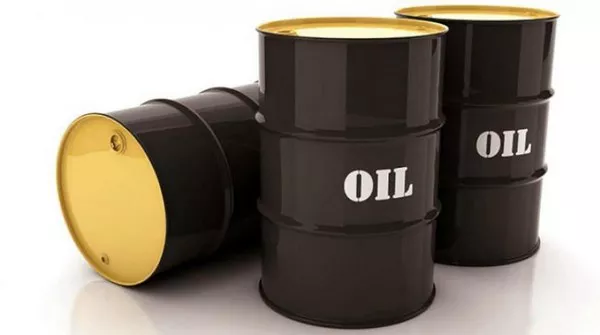Crude oil futures contracts are financial instruments that allow investors and traders to speculate on the future price of crude oil. These contracts are standardized agreements to buy or sell a specific quantity of crude oil at a predetermined price on a future date.
1. Understanding Crude Oil Futures Contracts
Crude oil futures contracts are traded on various commodities exchanges worldwide, with the most significant market being the New York Mercantile Exchange (NYMEX). Each contract represents a specific quantity of crude oil, typically measured in barrels. The value of a crude oil futures contract is determined by the current market price of crude oil, which can fluctuate based on various factors such as supply and demand dynamics, geopolitical events, and economic indicators.
2. The Size and Value of Crude Oil Futures Contracts
The size of a crude oil futures contract varies depending on the exchange and the specific contract specifications. In the United States, the standard size of a crude oil futures contract is 1,000 barrels. For example, if the current market price of crude oil is $50 per barrel, the value of one crude oil futures contract would be $50,000 (1,000 barrels x $50 per barrel).
3. Trading Crude Oil Futures Contracts
Trading crude oil futures contracts involves using a commodity futures broker who has access to the futures exchanges. Investors can place orders through the broker’s trading platform, selecting from various order types such as market orders, limit orders, and stop-loss orders. Market orders execute at the prevailing market price, while limit orders allow investors to specify their desired price levels for execution. Stop-loss orders are used to limit potential losses by automatically selling a position if the price reaches a certain level.
4. Contract Specifications for Crude Oil Futures
Each crude oil futures contract has specific contract specifications that outline important details such as the contract size, delivery months, tick size, and minimum price fluctuation. For example, a standard NYMEX crude oil futures contract has a tick size of $0.01 per barrel and a minimum price fluctuation of $10 per contract. Understanding these specifications is crucial for accurate trading and risk management.
5. Factors Influencing Crude Oil Futures Prices
The prices of crude oil futures contracts are influenced by a wide range of factors, both fundamental and geopolitical. Supply and demand dynamics, geopolitical tensions in major oil-producing regions, changes in oil inventories, economic growth, and currency fluctuations all impact crude oil prices. Traders and investors need to stay informed about these factors to make well-informed decisions in the crude oil futures market.
6. Leverage and Risk Management in Crude Oil Futures Trading
One of the key features of trading crude oil futures contracts is leverage, which allows investors to control a large contract value with a relatively small initial investment (margin). While leverage can amplify potential gains, it also increases the risk of significant losses. Proper risk management strategies, such as setting stop-loss levels and position sizing, are essential for managing risk in crude oil futures trading.
7. Popular Crude Oil Futures Contracts
Several popular crude oil futures contracts are actively traded on commodities exchanges worldwide. Besides the standard NYMEX crude oil futures contract, other popular contracts include the Brent crude oil futures contract on the Intercontinental Exchange (ICE) and the Dubai crude oil futures contract on the Dubai Mercantile Exchange (DME). Each contract has its own specifications and trading characteristics.
8. Hedging with Crude Oil Futures Contracts
Hedging is a common use of crude oil futures contracts for commercial participants, such as oil producers and consumers. Producers can use futures contracts to lock in prices for future production, protecting against potential price declines. Consumers, such as airlines or transportation companies, can use futures contracts to lock in prices for future purchases, protecting against price increases.
9. Speculating in Crude Oil Futures
Apart from hedging, many traders and investors engage in speculating on crude oil futures to profit from price movements. Speculators analyze market trends, technical indicators, and fundamental factors to make educated predictions about future price movements. Successful speculation requires a combination of research, analysis, and risk management skills.
10. Conclusion
Crude oil futures contracts offer opportunities for investors and traders to participate in the dynamic crude oil market and potentially profit from price movements. Understanding the size and value of crude oil futures contracts, the trading process, contract specifications, and factors influencing prices is essential for successful trading in this complex market. Engaging in crude oil futures trading requires thorough research, risk management, and discipline to navigate the inherent volatility and capitalize on potential opportunities in the energy sector. With proper knowledge and a well-defined trading plan, investors can effectively use crude oil futures contracts to diversify their investment portfolios and potentially achieve attractive returns.

